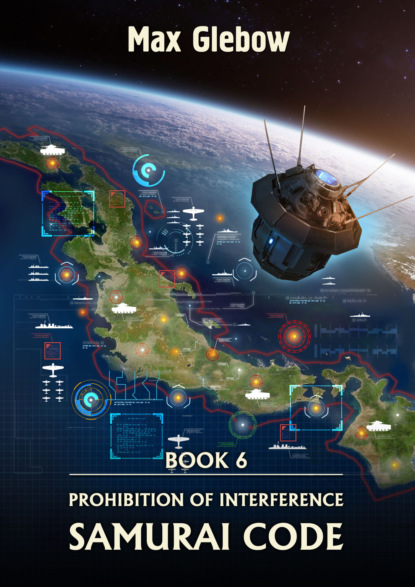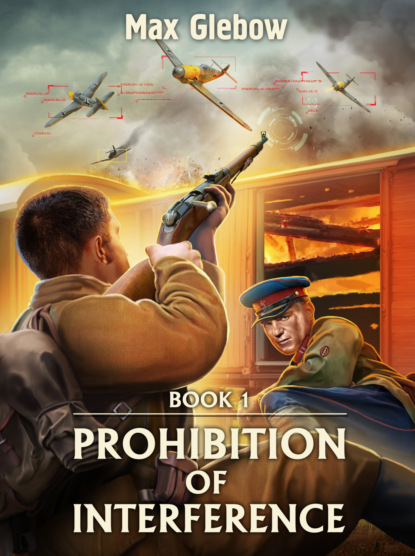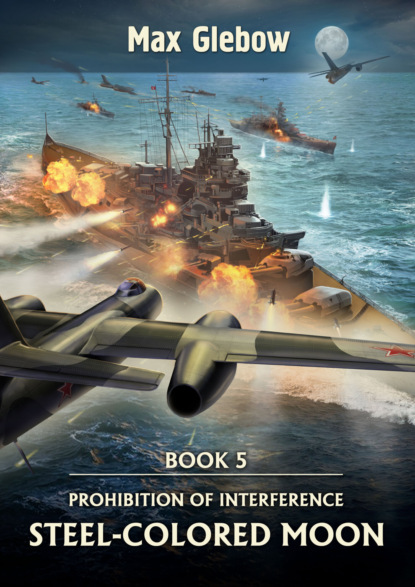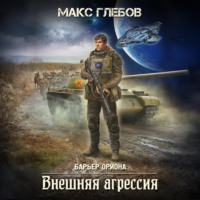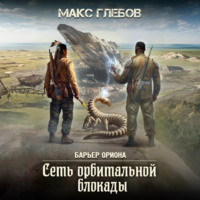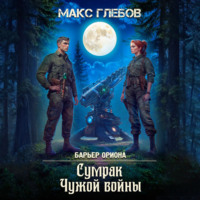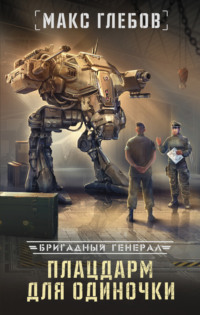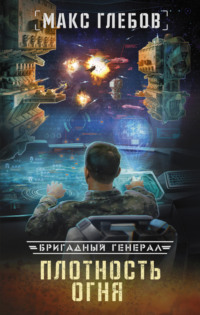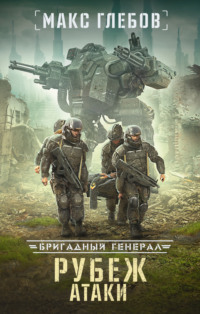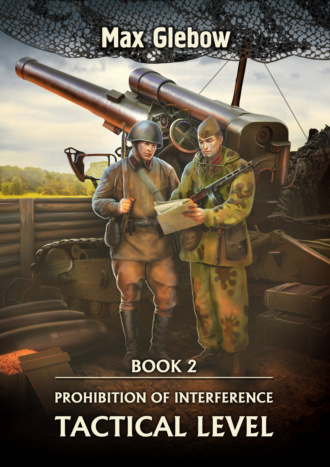
Полная версия
Prohibition of Interference. Book 2. Tactical Level
“Comrade Lieutenant Colonel, allow me to make a little demonstration. A day ago I visited the German rear, and there our group discovered, among other things, one very promising dugout, which for all intents and purposes looked like a field ammunition or fuel depot. It was at night and we didn't get a good look at it, but I made a mark on the map and remembered the coordinates. If you let me work with the crew of one of the B-4s, I will calculate all the necessary data for firing and report to the gunners. You have a telephone connection to the front line, and we can have someone at the nearest regimental observation post to look in the right direction. The warehouse is eight and a half kilometers from the first line of German trenches, but if it stores ammunition or fuel, the result of the hit should be quite visible from the regimental observation post.”
The artillery regiment commander pondered my suggestion for about ten seconds, looking at me from his considerable height.
“Three shells, Junior Lieutenant,” he finally squeezed out irritably, taking the map out of his clipboard, “Where's the warehouse?”
* * *The division commander, Senior Lieutenant Biryukov, escorted me to the howitzer position allocated by the Lieutenant Colonel to check my words. He looked skeptically at the visiting scout who tried to pretend to be an artilleryman.
“Comrade Senior Lieutenant, the gun is camouflaged and ready to fire,” the crew leader reported to Biryukov. “On your orders, we're finishing setting up a backup position 300 meters from here at the edge of the forest.”
“Staff Sergeant, assemble your crew. You are temporarily under the command of Junior Lieutenant Nagulin, for exactly three shots from your gun. I'll be there too, but I won't interfere. Do it!”
“Copy that!” Biryukov's subordinate turned to me, “Comrade Junior Lieutenant, B-4 howitzer commander Staff Sergeant Ilyin. What are the orders?”
“First of all, Staff Sergeant, show me your gun.”
It took me about ten minutes to go over the whole position, look in the barrel of the howitzer, look through the correction table, then I asked the Senior Lieutenant if the regiment had the latest weather data, and after that I went to pick out shells for firing.
As I approached the charges stacked in the crates under the canopy and began to take them out one by one, weighing them in my hands, the Sergeant and Senior Lieutenant looked at me with a sneer mingled with wariness.
“These, Comrade Staff Sergeant,” I put aside the selected charges.
My next target was actually high-explosive shells. When I approached them, the grin on the Lieutenant's face became a little more obvious – I was not distinguished by a powerful physique, and the shell weighed a hundred kilograms.
I bent down and lifted the projectile, shook it from side to side, rotated it several times along its axis, giving the computer a chance to assess the mass distribution and the suitability of the ammunition for accurate shooting. From the corner of my eye, I watched the grin slip off the Lieutenant's face, and the crew leader shook his head respectfully.
Two shells I rejected, and the three selected shells I put aside next to the charges.
I turned to the Staff Sergeant. “You will shoot in this exact sequence. Load it up!”
I gave the crew leader the data to set the sight, the deflection, and the level, and the gunners loaded the howitzer with rote movements, and the piston bolt clanked loudly, locking the barrel's channel.
“The gun is ready to fire!” reported Ilyin, having reeled off 20 meters of rope tied to the trigger handle.
The Lieutenant and I were descending into a small trench when the buzzer of the field telephone mounted in it sounded.
“Comrade Colonel informs that the observers at the regimental observation post are ready,” reported a private first class on duty at the station.
The Senior Lieutenant gave me a questioning look, and I turned to the crew leader.
“Fire!”
I covered my ears with my hands and opened my mouth to soften the impact of the sound wave, but the effect of the B-4 shot still exceeded my expectations. A howitzer of special power is not a very humane thing for one's own crew.
The Sergeant went about loading the gun, while the Senior Lieutenant and I had no choice but to wait. I closed my eyes and watched the flight of the shell with interest. The computer was drawing a dotted line of projected trajectory, and it was obvious that it would not be an exact hit, but the result was still not bad.
Конец ознакомительного фрагмента.
Текст предоставлен ООО «ЛитРес».
Прочитайте эту книгу целиком, купив полную легальную версию на ЛитРес.
Безопасно оплатить книгу можно банковской картой Visa, MasterCard, Maestro, со счета мобильного телефона, с платежного терминала, в салоне МТС или Связной, через PayPal, WebMoney, Яндекс.Деньги, QIWI Кошелек, бонусными картами или другим удобным Вам способом.
Примечания
1
A Panzer Group is an operational large formation, which would more commonly be called a tank army. This term was used in the armed forces of Nazi Germany during World War II. The Panzer Group had up to a thousand tanks, combined into two or four corps. In total the Panzer Group consisted of up to five tank divisions, three or four motorized divisions, and up to six infantry divisions.


